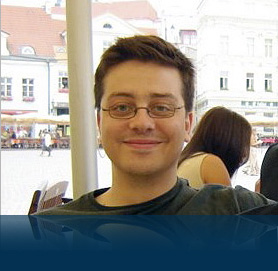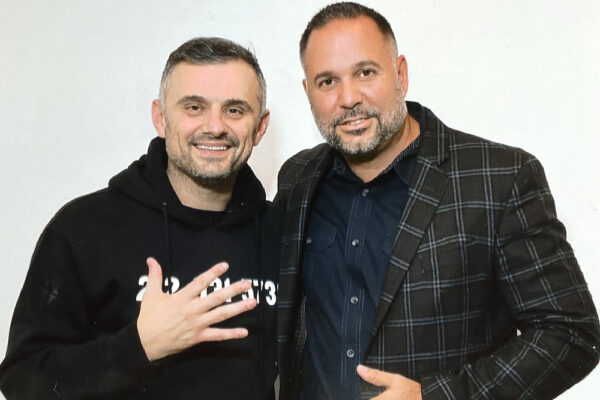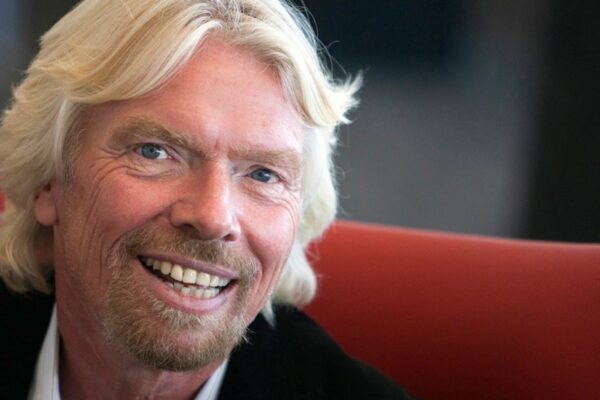Not sure if you know, but Skype was born in Estonia and quickly become one of the reference points when talking about innovative technologies that turned into gold in just a couple of years. Estonia is a small country in the Baltic region that’s called the Silicon Valley on the Baltic Sea. I was very happy to get in touch with Andres Sehr, head of marketing for Edicy – a new online venture born in Estonia and find out about business innovation and people behind it.
Estonia is Skype’s home and has become the Silicon Valley on the Baltic Sea. What’s special in starting a technology company in Estonia?
Andres: Estonians have embraced technology since we’re regained independence. We skipped a whole generation of technology and went straight to mobile phones, wireless internet and e-voting. I think this wide acceptance of technology has really made it easier for people to be enthusiastic and interested in tech and therefore there’s a large number of companies that have come from it.

You are now involved with an interesting project: Edicy – the simplest Web editor. What does it do?
Andres: Edicy is the easiest way to make a website. Anyone can do it without knowing the first thing about programming or design. You can setup a site in minutes and add pictures, start a blog, pick designs, promote your business.
Who should use Edicy?
Andres: Anyone can use Edicy, it’s really simple but also powerful enough to run a site for a larger business. Our main focus though is on the average internet user or small business owner.
Someone who runs a local store or service and would like to get a web presence but finds that it’s either to expensive or time consuming to start. Edicy removes all those barriers and makes having a website as easy as possible.
Any examples of sites built with Edicy?
Andres: There are a number of sites that are built with Edicy, but we’re only just now starting to see some good user built sites. For instance http://saksatakso.edicypages.com/ is a taxi firm in Estonia that quickly built their site right after we launched. Another site that is fully built on Edicy is www.starman.eu, one of the largest telecommunications firms in Estonia. They have a custom design but that is the only difference, it’s 100% Edicy. We have a number of sites that we design up on our site at www.edicy.com/examples. Soon we’ll also be highlighting sites made by users on that page.
I’ve noticed on Edicy’s site that you are looking to build some partnerships. What would be the ideal partner you would need right now?
Andres: We don’t have an ideal partner in mind at the moment. We’re looking for someone who is interested in providing the same thing we are, an easy service and great customer care.
The company behind Edicy, Fraktal was founded in 2007. I can see that you are now a lot of people working for Edicy. How do you support the investments needed for Edicy?
Andres: At the moment Frakatl has been funded by the 4 founders, we’ve also taken on a number of custom design jobs which has helped keep cash flow coming in while we ramp up Edicy. We’re currently in the process of looking for venture capital funding and are open to outside investment.
Reading your blog I couldn’t stop noticing, wow, you’re young. How many employees do you have and what’s the medium age?
Andres: We are a young company, I’d say the average age is around 24-26. We have at the moment 16 employees.
You told me that sometimes is hard to hire for a start-up because people find working for a startup riskier. So how do you find the right employees?
Andres: Finding the right employees for a small firm is one of the greatest challenges. In a small firm one bad hire can do a lot more damage than they could in a larger one. For this reason you have to make sure that the person you’re hiring is not only an expert in their field but someone who is committed to the project, someone who you can see yourself spending a lot of long days with and someone who adds an element to the team that is missing or could be improved.
Your colleague Tajo Oja made a “funny” post on the blog about the requirements to get hired at Edicy. Is working for Edicy just fun or it has the ups and downs as in any company?
Andres: All companies have ups and downs, everyone expects their new startup to be the hottest new thing around but sometimes it takes time to build up, this can be frustrating. In general though working on Edicy has been a great experience with a lot of fun and interesting people involved.
How do you come up with the name, Edicy?
Andres: We actually ran a naming contest awhile back where people submitted names and Edicy popped out from there. It goes well with the idea of Editing a website.
Ok, you already have around 12.000 users. But I couldn’t find the revenue model. How do you make money out of a project like Edicy?
Andres: We’re operating in a “freemium” type of model where most of our users sign up for our free service but then a smaller percentage will upgrade to Edicy Pro which allows them to further customize their site with a web domain.
Any plans for the future, say the next 5 years for Edicy?
Andres: 5 years a long time to plan out but we do have plans to continue to develop Edicy so that it has more features but also stays as simple as possible. We don’t want to add features that unnessecarily complicate website creation. We plan to work on a web store option so that small business can use Edicy to sell directly to their clients, integrating it directly with Edicy to make it unbelievably simple to set up your own web shop.
Most Entrepreneurs are really afraid of finding a good idea for a business. How did you come up with the Edicy idea?
Andres: We were looking for a web building tool that was good. Most of the ones out there are just to hard for the average user. I think a lot of good ideas are born out of the personal needs of the founders or people close to them.
Can you describe shortly a day at the office for you and for your colleagues?
Andres: Most days start off around 8:30 or 9 and people slowly come in. Mornings often include meetings, we break for a team lunch around 1pm then get back to work. On launch day’s work can sometimes go the wee hours of the morning, which is typical for a startup. We have colleagues who work remotely as well which changes the dynamic, we’re also about to open an office in Tallinn for the people who live there.
Many of you have previously worked with Skype. Is that how you got together?
Andres: Skype has brought many of us together. Some of the founders have known each other for years and when they started looking for people to start a company with it was only natural for them to look towards former Skype colleagues who they’d worked with before.
How should a young start-up as yours promote itself? Any special marketing techniques?
Andres: Getting your name out there is important. Take part in events, talk to journalist and blogger and be willing to talk to anyone who will listen.
Any word of advice for young people willing to start a business in Estonia?
Andres: If you’re young you usually have little to lose so taking a year to try out an idea is not a big risk. And think big, Estonia is a small market but with the internet you can reach the entire globe.
Any mistake worth mentioning that has been done until now and you would try to avoid in the future?
Andres: I can’t think of any big mistakes worth mentioning, just making sure that we learn for anything that goes wrong is the most important.
Thanks for the interview and good luck!




